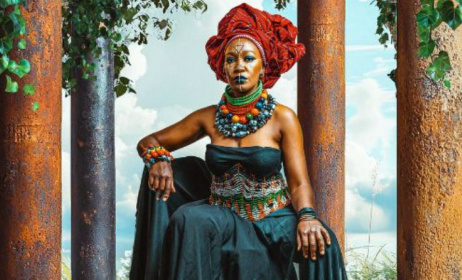Kenyan CMOs vow to serve artists' interests
Kenya Copyright Board (KECOBO) executive director Edward Sigei has pledged to work closely with the three newly accredited collective management organisations (CMOs) to set up decentralised systems aiming to ensure transparency in royalty collection and distribution.
 Ezekiel Mutua and Edward Sigei.
Ezekiel Mutua and Edward Sigei.
Sigei was speaking during the opening of a two-day directors' retreat organised by the Kenya Film Classification Board (KFCB) at Simba Lodge in Naivasha on 28 March 2019.
According to The Standard, Sigei said that the the Music Copyright Society of Kenya (MCSK), the Kenya Association of Music Producers (KAMP) and the Performance Rights Society of Kenya (PRISK), which were granted licences to collect royalties in 2019, would work to forward the interests of performing and recording artists.
“We have a binding commitment with the CMOs to pay 70% of all they collect and only use 30% for management and logistics,” he said.
Sigei also allayed fears that the CMOs would squander the royalties they had collected, as had happened in the past.
In 2017, KECOBO denied the MCSK a licence to collect royalties in Kenya. This decision was made after the MCSK failed to produce its latest audited financial statements for the year ending June 2016, declare the amount of fees collected and amounts spent in administrative costs, and provide a list of its members and the royalties paid to each.
At the same time, KAMP chairperson Anthony Murimi announced that more than 14 million Kenya shillings ($150 000) would be distributed in July by KAMP alone.
MCSK chairperson Japheth Kassanga said he was committed to meeting the expectations of registered members. “We are ready to shed our past and from now on things will be different,” he said.
Additionally, KECOBO and the KFCB will now work together to train CMO board members on good corporate governance in the fight against piracy and ensure that artists are compensated for their work.
KFCB boss Ezekiel Mutua said that the government would no longer rate pirated music and films, and those involved in piracy would face the full might of the law. Mutua, who had previously come under fire for attacking entertainers on moral grounds, also said the KFCB would continue to regulate vulgar and obscene content.
He said a recent KFCB survey showed that 18 of 20 Skiza tunes used on mobile phones fell under the gospel category, which meant that Kenyans wanted clean content.
“The narrative that content has to be dirty to sell is a fallacy. It's misleading and entirely an agenda of perverts who want to ruin our moral fabric," Mutua said.




































Comments
Log in or register to post comments